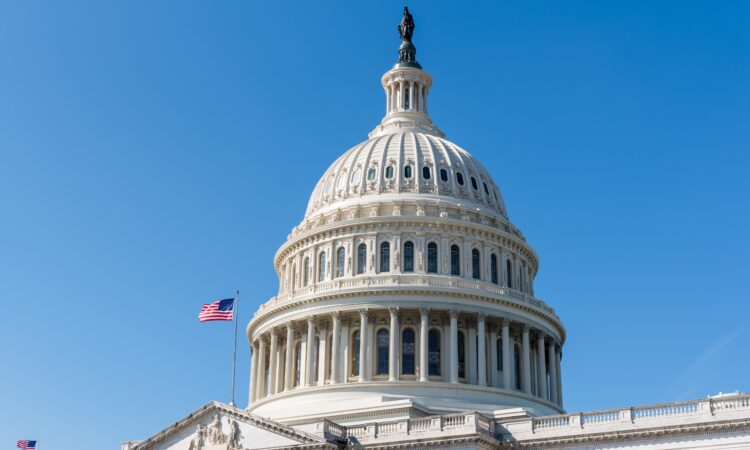
In detail
House passes The Tax Relief for American Families and Workers Act of 2024
H.R. 7024, the Tax Relief for American Families and Workers Act of 2024, as approved by the House, includes the following key business provisions:
Section 174 expensing: H.R. 7024 would allow taxpayers to deduct currently domestic research or experimental (R&E) costs that are paid or incurred in tax years beginning after December 31, 2021, and before January 1, 2026. R&E costs that are attributable to research that is conducted outside of the United States would continue to be deducted over a 15-year period.
Taxpayers also may elect to capitalize R&E costs and amortize such expenditures over a period of not less than 60 months or over their useful life if determinable, subject to specific elective transition rules. (-$8.5 billion over 10 years)
Observation: If H.R. 7024 becomes law and an immediate deduction of Section 174 costs is restored for US-based domestic research or experimental costs, then taxpayers will once again be eligible to make an annual Section 59(e) election to capitalize and amortize any portion of those costs.
Observation: Pending further accounting method change procedural guidance, H.R. 7024 appears to provide that a taxpayer can reflect the retroactive application of Section 174 expensing via a change in method of accounting with either a one-year Section 481(a) adjustment or an elective two-year Section 481(a) adjustment. Alternatively, H.R. 7024, when combined with the current law for accounting method changes, appears to provide that eligible taxpayers generally would be permitted to amend their first tax year beginning on or after January 1, 2022, to reflect current expensing of eligible Section 174 expenditures.
Note: An earlier Section 174 provision that would have reinstated expensing for both US-based and foreign-based R&E costs was estimated to cost $25.4 billion over 10 years. That provision was part of a larger package of tax proposals approved in June 2023 by the Ways and Means Committee with the support of only Republican committee members; no further action was taken on that legislation by the House.
Section 163(j) interest deductions: H.R. 7024 would extend the application of interest deductions to compute alternative taxable income (ATI) without regard to any deduction allowable for depreciation, amortization, or depletion (i.e., earnings before interest, taxes, depreciation, and amortization (EBITDA)) to tax years beginning after December 31, 2023 (and, if elected, for tax years beginning after December 31, 2021), and before January 1, 2026. (-$18.8 billion over 10 years)
Section 168(k) “bonus” depreciation: H.R. 7024 would extend 100% bonus depreciation for qualified property placed in service after December 31, 2022, and before January 1, 2026 (January 1, 2027, for longer production period property and certain aircraft) and for specified plants planted or grafted after December 31, 2022, and before January 1, 2026. The legislation would retain 20% bonus depreciation for property placed in service after December 31, 2025, and before January 1, 2027 (after December 31, 2026, and before January 1, 2028, for longer production period property and certain aircraft), as well as for specified plants planted or grafted after December 31, 2025, and before January 1, 2027. (-$3.0 billion over 10 years)
US-Taiwan double-taxation relief: H.R. 7024 would provide treaty-like benefits aimed at relieving double taxation for businesses engaged in cross-border activities between the United States and Taiwan. It substantively follows provisions in a discussion draft released in July 2023 by the chairman and ranking members of the House Ways and Means and Senate Finance Committees. The legislation would make benefits available to Taiwan corporate tax residents other than “qualified residents” of Taiwan provided that the relevant income satisfies an active trade or business test, which was not included in the earlier discussion draft. For more information on the July 2023 discussion draft, see the PwC Insight. The legislation also includes provisions to authorize the negotiation of a US-Taiwan tax agreement providing double taxation relief, similar to a bill (S. 1457, the Taiwan Tax Agreement Act of 2023) the Senate Foreign Relations Committee approved in July 2023. (no revenue effect)
Other provisions
- Child tax credit enhancements, including provisions to index the $2,000 child tax credit starting in 2024 and the refundable maximum starting in 2025, and increase the refundable maximum to $1,800 in 2023, $1,900 in 2024, and $2,000 in 2025 before indexing (all provisions sunset December 31, 2025). (-$33.5 billion over 10 years)
- A temporary increase in Section 179 small business expensing. (-$2.5 billion over 10 years)
- Tax relief for disaster-impacted communities. (-$4.9 billion over 10 years)
- Low-income housing tax credit and tax-exempt financing provisions. (-$6.3 billion over 10 years)
- Forms 1099-NEC and 1099-MISC information reporting relief for payments by a business for certain services performed by an independent contractor or subcontractor. (-$1.5 billion over 10 years)
Employee Retention Tax Credit: The revenue cost of H.R. 7024 is offset almost fully by changes to the ERTC. Under current law, taxpayers have until April 15, 2024 to amend 2020 returns and April 15, 2025 to amend 2021 returns to claim the COVID-related ERTC. H.R. 7024 accelerates the deadline for all amended returns to January 31, 2024. The legislation also extend the statute of limitations for assessment to six years and would increase the penalty for aiding and abetting the understatement of a tax liability by a COVID-related ERTC “promoter.” (+$78.8 billion over 10 years)
